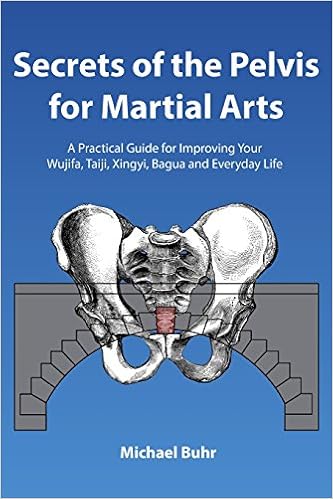When these movies are interpreted through the lens of internal gongfu training, a deeper meaning is revealed. These movies illustrate the difference between living mechanistically and living with a bit more feeling.
If you find yourself asking, "What does this movie have to do with developing internal connection?" this is a good first step. Remember though, if you dismiss the movie with a conceptual analysis then you've missed the point. Look at these movies as if these were internal gongfu training videos. How can you make little changes in your life like these characters do; to feel more, to connect more, and then notice how your practice and your life change as you notice and build more and more connections.
Circle of Iron (the 1978 remake of Bruce Lee's "The Silent Flute")
I first watched this movie over thirty years ago before I started on the Tai-chi road. At that time I was enamored with the choreographed fighting scenes and the Asian martial arts mystical fantasy. Now, after thirty years of seeking and training to develop "internal connection", I watched this old movie again but with different eyes. See my analysis at: Circle of Iron - Quotes for Internal Gongfu.
Pleasantville (1998)
This movie uses black-and-white to represent living with no or minimal feeling and uses color to represent living fully with feeling. Notice how people and their environment change from black-and-white to color when they allow themselves to feel. When viewed this way, the title, "Pleasantville" sarcastically suggests that life devoid of feeling is, well, "pleasant". There are no dramatic nor authentic expressions of feeling because this might be unpleasant. In this world, it is better to express yourself according to the way you think a feeling should be expressed; the socially agreed upon expression of a feeling. See my analysis at: Zen of Pleasantville (1998) Movie Analysis
City of Angels (1998)
The inner meaning in this movie is that to become human, to feel, requires dying to being disconnected, disembodied and becoming fully connected, embodied. Feeling is what it means to be fully human. In this film, angels represent the non-feeling disembodied life; disassociation from the body. Their drab, black attire lacks vibrancy. This is juxtaposed against the world of humans portrayed in color. When viewed this way, the title, "City of Angels" suggests cities full of people living their lives mechanistically, out-of-touch with feeling. See my analysis at: City of Angels (1998) Movie Review and Summary.
Unleashed (2005)
Originally titled "Danny the Dog", this movie can be viewed as a dramatic depiction of the internal gongfu development process. As I've repeated in this blog, the process involves identifying and letting go of habituated muscular-emotional patterns to develop integrated mind-body presence. In this film, Danny shut down to feeling and lived a disconnected mechanical life until feeling broke through. At that juncture, he chose the difficult path of pursuing living with feeling. The end of the movie offers an ironic twist; exchanging one collar for another. Deeply philosophic. See my analysis at: Unleased (2005) Movie Review & Summary.
Fearless - The Director's Cut (2006)
The Hollywood release of this movie is completely different from the Director's Cut version. I highly recommend you watch the Director's Cut version. The core of this version focuses on the transformation of the main character, Huo Yuanjia, from someone who focused on developing "external" fighting skills (and becoming really good at this) to someone who softens and connects with the feeling of living and through this transformation, develops a deeper understanding of life and the expression of life through his fighting. He transforms from a martial technician to a martial artist. (No further analysis. Just a great film made better if you know what to look for!)
Roman Holiday (1953)
While this has been long billed as a romantic comedy or romantic fantasy, there is in fact a key subplot relevant to this blog. The princess lives an isolated, routinized, scheduled life. Her one desire is to escape this life if only for a day, and live spontaneously, without schedules, and alive to feeling every feeling of every moment. In the end, she chooses to return to her royal career and when she does, she is more alive and self aware.
If you have other movies that you believe are relevant that I may add to this list, email me and I'll have a look.







